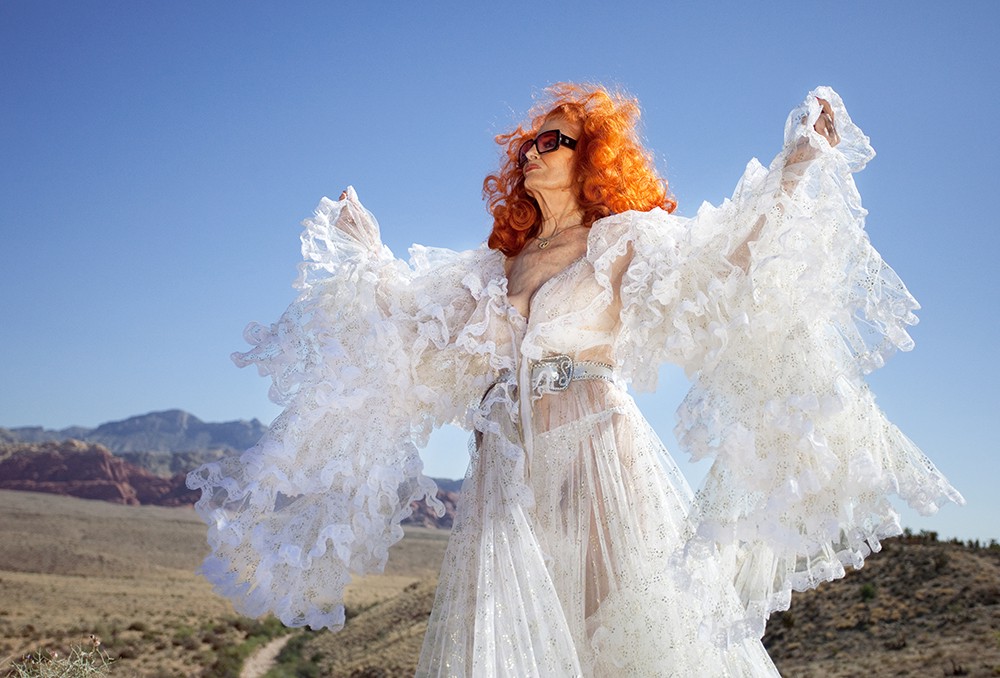An award-winning director of film and television, Nimisha Mukerji’s work has been featured on National Geographic and VICE. Her critically acclaimed debut feature “65_RedRoses” was selected by Oprah Winfrey for OWN’s Documentary Club. Her follow up film, “Blood Relative,” won audience awards in Vancouver, New York, and Paris before screening in competition at the 2013 Hot Docs Film Festival. (Press materials)
“Tempest Storm” will premiere at the 2016 Hot Docs Film Festival on April 30.
W&H: Describe the film for us in your own words.
NM: “Tempest Storm” is the controversial life story of an 85-year-old American sex icon, who after decades of estrangement from her family is ready to set the record straight. While the film is a celebration of Storm’s remarkable career — she was a self-made career woman at a time when women had very limited options — at the heart of the film is the struggle for self-forgiveness and acceptance.
W&H: What drew you to this story?
NM: I couldn’t believe a film hadn’t been made about Storm before. She’s the last iconic burlesque performer from her era, with an incredible history and mystery around her. Even though she became famous for her artful way of removing her clothes, she’s actually a very private person — especially when it comes to discussing her family. That was probably what interested me the most.
She drew me into her story by slowly revealing the details of her past. Here was a woman who came from the Deep South, who had no education, and grew up during the Depression. She survived poverty, isolation, and a violent sexual assault to emerge as an independent woman who rose to the top of her field. But despite her many accomplishments, she continues to be haunted by many of her decisions in the past.
W&H: What do you want people to think about when they are leaving the theater?
NM: I’m interested in films that spark discussions and that don’t necessarily have easy answers. I think Storm defies conventional notions of what it means to be a woman, since she rejected the idea of abandoning her career to be a “good” wife and mother.
In many ways she’s an anti-heroine. She’s human. She faced tough choices, and 50 years later many of the problems she encountered such as class, gender equality, and racism, remain relevant today.
W&H: What was the biggest challenge in making the film?
NM: Originally we thought the bulk of the film was going to be set in the past, but in the end only about twenty percent relies on archival [material]. Embracing the cinema verite component with my cinematographer Lindsay George and then getting all the pieces to set up potential storylines unfolding in the present was tricky.
And it also took me time to understand that while when it comes to her own life Storm is very open, but when it involves the lives of those close to her, she is very protective. She never wants to say anything negative or hurtful towards the people she loves. I began thinking of her as a secret keeper; it’s a rare quality to find in a person.
W&H: How did you get your film funded? Share some insights into how you got the film made.
NM: My producing partner, Kaitlyn Regehr, and I got development funding through Kickstarter, where we were able to raise over $45,000. We then were selected to pitch at different forums, including TIFF and WestDoc, where we won best pitch.
It was at Hot Docs where we secured our broadcasting partners Super Channel, ARTE and SWR. All the commissioning editors who supported the film were women — they understood the story we were trying to tell. We also won best pitch at the Hot Docs Forum and received a $10,000 cash prize from Shaw Media.
W&H: What’s the biggest misconception about you and your work?
NM: Occasionally, I get the reaction from people that my films are somehow tragic because they don’t necessarily have happy endings. To me that doesn’t mean they can’t create a positive impact or be inspiring.
Shel Silverstein famously stated that in life “there are no happy endings, endings are the saddest part. So just give me a happy middle, and a very happy start.” That’s the approach I take with my films. The story continues even after I finish shooting, and unlike in narrative. the truth of life is that it’s impossible to wrap up everything in a neat little bow.
W&H: What’s the best and worst advice you’ve received?
NM: The best advice I’ve received is to say “Yes.” So much of the time we come up with reasons we can’t do something. The trick is to push past that feeling and stick with the affirmative.
The worst advice I’ve received is to quit while I’m ahead. If you do that you’ll never know how far you could have gone. Also I find I learn the most when things start to fall apart.
W&H: What advice do you have for other female directors?
NM: Rejection happens. Take ego out of the equation and just focus on the work. That’s about all you can control.
W&H: Name your favorite woman-directed film and why.
Laura Poitras is a prolific filmmaker as exemplified in her brilliant film “Citizenfour.” She was chosen by Edward Snowden to tell his story and what we witness is history unfolding right in front of her lens. The risks she undertook to make the film are palpable throughout. It’s political, it’s honest, and it’s intimate. It’s totally brave filmmaking.







